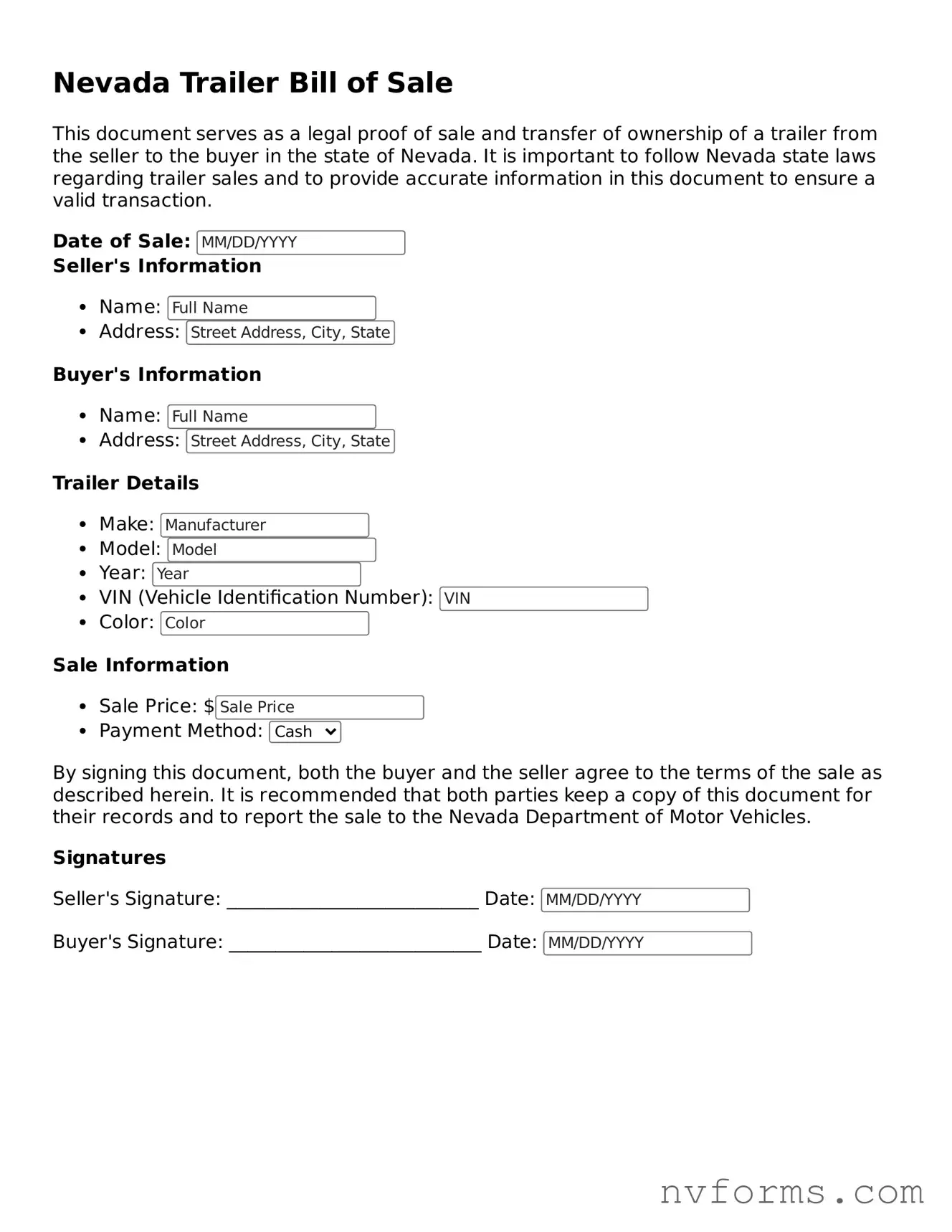Free Trailer Bill of Sale Form for Nevada
The Nevada Trailer Bill of Sale form is a crucial document that records the sale and transfer of a trailer from one party to another in the state of Nevada. It serves as proof of purchase and ensures that the transaction details are legally documented. Whether buying or selling, understanding and completing this form accurately is important for all parties involved.
Launch Editor

Free Trailer Bill of Sale Form for Nevada
Launch Editor

Launch Editor
or
⇩ Trailer Bill of Sale File
Don’t stop now — finish the form
Finish Trailer Bill of Sale online using an easy step-by-step flow.